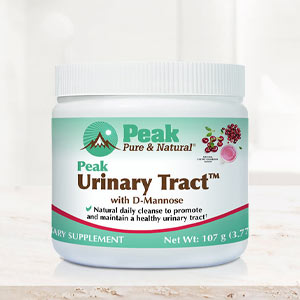Get Easy Health Digest™ in your inbox and don’t miss a thing when you subscribe today. Plus, get the free bonus report, Mother Nature’s Tips, Tricks and Remedies for Cholesterol, Blood Pressure & Blood Sugar as my way of saying welcome to the community!
Osteoporosis: The forgotten mineral that lowers the risk

Calcium is essential for strong bones. But drinking milk or popping a calcium supplement every day is only half the battle.
When it comes to bone health, it’s crucial to combine calcium with vitamin D, or else your body won’t properly absorb the mineral. You also need to be getting enough magnesium, as it helps convert vitamin D into its active form for optimal calcium absorption.
The trace mineral zinc is also good for your bones. Zinc supports bone-building cells while inhibiting the formation of cells that encourage the body to break down bone.
But copper may be the forgotten trace mineral that’s instrumental for bone health. Copper plays a key part in cross-linking collagen, a significant component of bone tissue’s extracellular matrix, with elastin to produce bone. The mineral also supports the growth and function of osteoblasts, the cells responsible for synthesizing and mineralizing bone.
In fact, researchers are uncovering more evidence as to just how critical copper is for protecting against bone loss….
More copper improves bone density
A study found that individuals with higher dietary copper intake have better bone mineral density and are less likely to develop osteoporosis than those with low copper levels.
The study utilized data from the National Health and Nutrition Examination Surveys (NHANES), conducted by the U.S. Centers for Disease Control and Prevention. The subjects were divided into four quartiles, ranging from lowest to highest dietary and total copper intake.
Results showed copper intake was independently associated with a lower risk of osteoporosis, and that there was a link between increased levels of copper and higher total spine/femur bone mineral density.
When examining the connection between increased total spine bone mineral density and higher copper levels, the researchers found this association only in women participants, not in men.
Of the 8,224 participants in the study, 4.3% met the diagnostic criteria for osteoporosis. The patients with osteoporosis tended to be older, more emaciated women with hypertension who were taking prednisone or cortisone. Patients without osteoporosis were found to consume higher levels of dietary or total copper.
The researchers note that this is one of the few studies to investigate the relationship between copper status and bone mineral density in adults. Previous observational studies have examined the link between serum copper and osteoporosis, and some animal studies have found that copper consumption is associated with improved bone strength.
Getting the right balance of copper
If you have a copper deficiency, it’s important to correct it to maintain good health. In addition to its role in bone health, copper is essential for immune system support and the proper growth, development, and maintenance of the brain, heart and other organs. It can even help with shedding excess fat and provide an energy boost.
The National Institutes of Health (NIH) recommends that adults over 19 get 900 micrograms of copper daily. Pregnant and breastfeeding women need more and should be consuming 1,000 micrograms and 1,300 micrograms per day, respectively.
But with copper, you need to be careful not to overdo it. Having too much copper in the body can cause problems like abdominal pain, cramps, nausea, vomiting, diarrhea and even liver damage. The NIH cautions adults not to get more than 10,000 micrograms of copper per day.
To maintain this balance, it’s probably best to avoid taking copper in supplement form, since a supplement could tip the scale toward too much. Stick with eating these copper-rich foods:
- Shellfish (especially oysters)
- Leafy greens (especially kale)
- Nuts and seeds (especially pecans and hazelnuts)
- Seeds (especially sesame seeds, flaxseeds and pumpkin seeds)
- Mushrooms
- Beans
- Liver
- Dates and figs
- Avocados
- Goat cheese
- Dark chocolate
Editor’s note: Did you know that when you take your body from acid to alkaline you can boost your energy, lose weight, soothe digestion, avoid illness and achieve wellness? Click here to discover The Alkaline Secret to Ultimate Vitality and revive your life today!
Sources:
Copper Intake Positively Associated With Bone Mineral Density and Negatively Associated With Osteoporosis Risk — Rheumatology Advisor
Associations of Copper Intake with Bone Mineral Density and Osteoporosis in Adults: Data from the National Health and Nutrition Examination Survey — Biological Trace Element Research
National Health and Nutrition Examination Survey — Centers for Disease Control and Prevention
Osteoblast — Britannica














